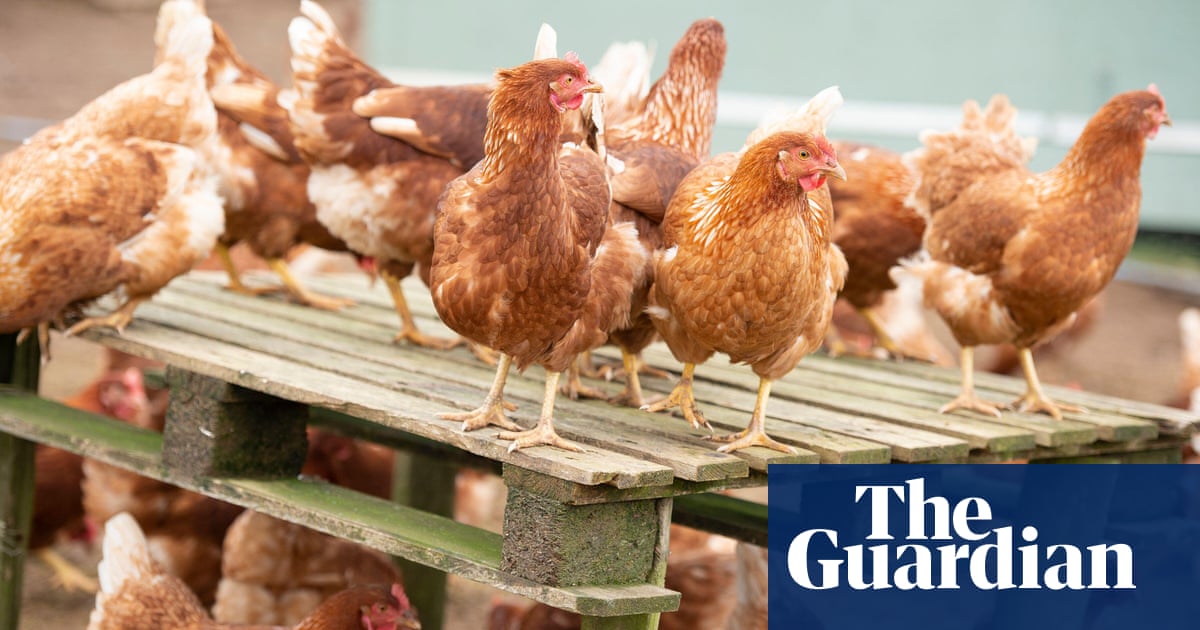When I was 17, a girl in my year died suddenly, in her sleep. Natalie was beautiful and very popular. We werenât friends and we hadnât really spoken to each other much. (I was a self-conscious, self-obsessed teenager and I assumed I was invisible to most of my classmates.) At the time, her death seemed like a matter for the other popular girls. Because I was self-obsessed, I was worried about being accused of using a tragedy to gain traction and social status. I didnât try to comfort her friends. I didnât understand that we were going through a collective, communal grief. My shock and sadness seemed fraudulent and I believed the best gift I could give anyone was space. Natalieâs very best friends were allowed to cry in the corridor and take time off school. If I tried it, Iâd be attention-seeking, claiming emotions I had no right to feel.
Now that Iâm 39, I regret everything I did and didnât do. I wish Iâd put my self-consciousness aside and let empathy lead the way. I could have gone to her friends and asked what they needed. I could have taken the time to get to know their version of Natalie, who probably wasnât a remote goddess to them, but a sweet, funny teenage girl.
Itâs taken me more than 20 years to understand that grief isnât an emotion we need to earn. During that time I learned about âdisenfranchised griefâ â a term coined by bereavement expert Kenneth Doka in 1989. He explained that it ârefers to a loss thatâs not openly acknowledged, socially mourned or publicly supportedâ. Even when we feel that we can openly claim our grief, itâs heavy and hard to navigate. When we donât think we have a right to our sadness, itâs impossible to heal.
It brought two friends to the forefront of my mind â John and Andrea. Their deaths were just over a year apart. They hadnât been my closest friends. There were other people in their lives who had a much greater claim to grief than me. But I thought about them both constantly. I missed them. I felt angry and guilty and ashamed that I hadnât been a better friend. I resented the other friends, whose grief seemed more legitimate than mine â and I hated myself for that. I had to remind myself that my feelings were shaped by love. When I tried to push my grief away, I pushed my happy memories away, too. I wanted the chance to remember the best of my friends, and the times when Iâd felt close to them.
The night I met John was especially memorable, because we both thought Iâd die first.
We went to a screening of a film. At the time, he was the editor-in-chief of a film website, which sounded very grand â later I learned that he was also the staff writer, the entire picture desk staff and occasionally the office cleaner. John was charming on Twitter â warm, generous, wicked and fun. Over pizza and drinks, I discovered that he was just the same in real life. Imagine a third Mitchell brother, played by Noël Coward. That was John.
As we wobbled in the general direction of Charing Cross, towards home, I asked âWhat are all those people doing on Nelsonâs Column?â
John turned towards me. âYouâve never been up Nelsonâs Column? How long have you lived in London? We must remedy this at once!â
I climbed up on to the plinth as gracefully as I could (not very) and marvelled at seeing London from a slightly higher vantage point than usual. I think John offered me his hand on the way down. I think I said, âDonât worry, Iâm fine.â I know exactly what happened next. I missed my step.
My memories are blurry, here, because I lost consciousness, but he came to the hospital with me. I can recall giggling as I used a bedpan behind a translucent curtain, while John turned his back and hummed a little tune to help me to preserve my dignity. I can picture the two of us, alone in a little room, watching the sky turn from navy to pink. Dawn was breaking, and I was out of danger. âI really thought you were going to die,â he whispered. His face was very pale. I smiled. âBut I didnât! And now we have a story! Weâll remember this for ever!â
I believed the incident marked the start of an important friendship. Weâd be in each otherâs lives for years to come, dining out on this ridiculous anecdote. But when John died, in hospital, six years later, I found out about his death on Twitter.
If I could go back to the moment when we met and give my past self a single piece of advice, it wouldnât be, âDonât go up Nelsonâs Column,â or even, âReally watch your step on the way down.â It would be: âThis friendship is precious. Fight for it. Donât take it for granted, and donât let it ebb away.â Weâd fallen into an easy, instant intimacy. Soon, we became part of a gang, made up of other Twitter friends who had made the leap into âreal lifeâ.
John had been diagnosed with blood cancer in the summer of 2015. The shock was searing, but galvanising. Shortly after his diagnosis, John had a birthday dinner. âGood to know that cancer will get everyone out in the middle of the week,â he joked. âI hope no one is going to leave after two drinks, pleading a morning meeting, under the circumstances.â We made plans to rally round, and talked about rotas, routines, freezer filling. We made jokes about Peterâs Friends and said that in 20 years, weâd return to the restaurant and say, âRemember when John nearly died?â Champagne all round.
A year later, John was still in and out of hospital, but he seemed to be responding to treatment. I left London and moved to the Kent coast, and my connection with our wider friendship group started to unravel. They seemed much closer to John than I was. I had always found the group difficult to navigate. It was easy for me to convince myself that the other members didnât like me at all. Anxiety and depression descended, periodically. I nursed a secret suspicion that I had always been a non-player character, and the main characters were glad to get rid of me. Now, Iâm ashamed that I let those feelings get in the way of a friendship I should have protected.
When I found out that John died, I was barely in touch with any of our mutual friends. How had I let myself lose him? What was the appropriate amount of grief to feel, when youâve loved someone very much â but youâve barely spoken to them during the last year of their life? My grief felt wrong. It had the wide, shallow bloom of a bruise. Iâd loved John, but had I meant anything to him? The emotions that rose in my throat seemed monstrous, so I swallowed them down again. I felt lonely, angry and selfish. This wasnât about me. It couldnât be about me. Iâd forfeited the right to my big feelings, by failing to protect the friendship. I was more mad than sad and it scared me. I focused on trying to feel less and making myself as numb as possible. Better to have no feelings, than the wrong feelings.
A year later, in the spring of 2019, my friend Andrea was diagnosed with a rare liver disorder. I knew Andrea through the Jilly Cooper book club, a gang of women who had bonded over a shared love of bonkbusters. Within minutes of Andreaâs awful announcement, the rallying round began. I had a spooky sense of déjà vu as we shared visiting schedules, made reading lists, and Monzoâd each other fivers for care packages. Andrea had known some of the other Jillies for ages, but the two of us had never spent any time alone together. After her diagnosis, we started to message each other frequently.
Andrea wanted to make plans. We talked about what would happen when she was out of hospital, when she was better, when summer came, when, when, when. It was peony season and we discussed where to acquire peonies, where to put them, their scent, their colour and how to prolong their lives. When I first met Andrea, Iâd have guessed sheâd like lilies or orchids. She seemed elegant, delicate and controlled. When we spoke about peonies, it was as though we were speaking about her second self, her moon sign â a craving for the pungent, riotous and intense.
I hadnât learned my lesson. As Andreaâs condition improved, I assumed sheâd make a stunning recovery, build a brand-new wing of the hospital and be given an OBE for services to grace under pressure. When my friend Kat called me early one sunny morning, I knew, before I slid my finger across the phone screen, that weâd lost her.
As I started to make sense of the situation, the awful old feelings rose up. I had less right to be there than anyone. I hadnât played enough of a role in Andreaâs life to grieve her. If I was going to earn my place among my friends, I had to offer comfort and support. But I didnât know what to say, or where to reach. I wondered whether this loss would help me make some sense of losing John and bring me some wisdom and perspective. Instead, it made that grief seem even heavier.
Grief wasnât supposed to feel this way. I waited for a slow, profound heaviness to take root. Instead, I felt wild. Angry, lonely, abandoned. And selfish. I had no right to these feelings. I couldnât tell anyone about them. Emotionally, I was at the very end of the queue.
I couldnât numb myself this time. The dam had burst. I shut myself off and marinated in shame and pity, feeling exactly like a child having a temper tantrum. When I cried, I didnât sob sweetly into a handkerchief, thinking beautiful thoughts about my lost friends. I screamed. Sometimes Iâd lie face down on my bed, grunting into a pillow, kicking the mattress as hard as I could. Please, I thought, someone, give me grace and strength, make me useful. Please let me burn through these mad feelings, so I can get to the proper ones.
The screaming helped, a little. Reading helped even more. I read Joan Didionâs The Year of Magical Thinking and Cariad Lloydâs You Are Not Alone, which were deeply comforting. Books saw my âwrongâ feelings and held them and absorbed them, without judging me. And then, in the spring of 2020, the Covid-19 pandemic began and death and grief were everywhere.
The observations made by creative people struck me. People talked about feeling heartbroken, because their first novel was being published when bookshops were closed, or being unable to perform in the plays theyâd been rehearsing for months â and then feeling guilty and ashamed of those feelings, because people were dying. Others talked about struggling to process the death of loved ones when they hadnât been able to spend any time with them at the end. Or about how wrong it felt to go to a funeral on Zoom. A friendâs cat died and she struggled to contextualise her grief. âI donât really know who to talk to, or turn to,â she said. âEveryone is suffering and struggling. Iâm not sure where my feelings fit in; there doesnât seem to be space for them on the scale.â
It was liberating to learn that for most of us, grief isnât just about death â we can grieve relationships, lost opportunities and endings. Everyone seemed to be experiencing disenfranchised grief, struggling to attach heavy, oversized feelings to losses that didnât seem strong enough to bear their weight. We felt isolated â scared to open up about the scale of our emotions. But we were isolated together. A wall fell away. I started to talk about missing John and Andrea. I started to realise that I was allowed to miss them. Grief wasnât proof of the impact Iâd had in Johnâs life, or Andreaâs â it was proof of the love theyâd brought to mine.
In a tribute to her partner and collaborator Lou Reed, Laurie Anderson wrote: âI believe that the purpose of death is the release of love.â Love is a lot like grief. Itâs rarely pure, sweet and easy. It can be heavy and painful. It can rush in like a tide, buoying us up, and knocking us down. It doesnât have a sense of proportion. We donât love in direct correlation to the amount we are loved. If I was more guarded with my love, maybe Iâd have a more straightforward relationship with my grief. But Iâm lucky in love â it fills my life. I have a lot of feelings for a lot of people and Iâve learned that there is as much wonder in loving as there is in being loved. Inevitably, this will lead to grief, concentric circles of it lapping my heart. And it will never be dignified or appropriate. It will be vast and wild, the same size as the cast of people who make my life brighter.
Pity Party by Daisy Buchanan is published by Sphere at £14.99. Buy it for £13.19 from guardianbookshop.com








